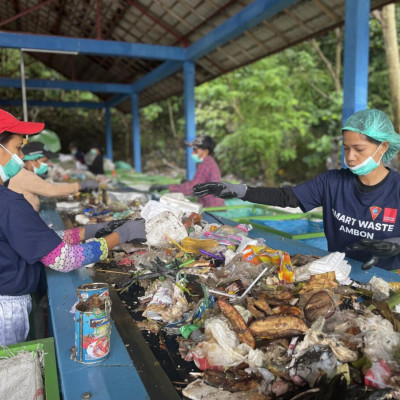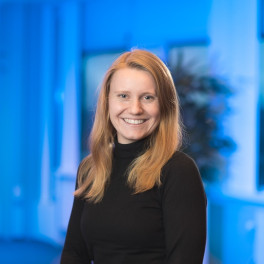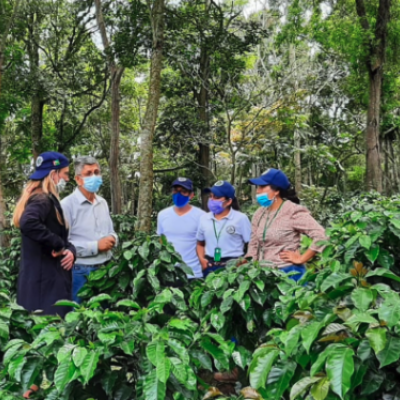Plastics in Circles
project results

Indonesia generates between 6.8 and 7.8 million tonnes of plastic waste annually. Only 10 per cent of this is recycled. In the process, the amount of plastic waste increases by about five per cent every year, and due to its extensive coastline and large number of rivers, plastic waste easily enters the oceans if not adequately managed. Moreover, Indonesia also imports 220,000 tonnes of plastic from abroad. To address this holistically, CSR Netherlands joins hands with a group of Dutch and Indonesian organisations for the programme: Plastics in Circles: Indo-Dutch Consortium on Circular Plastics (PiCi). Made possible in part by Rijkswaterstaat and the Dutch embassy in Jakarta.
Subprojects
Plastic is easy to recycle. But the processes for quality recycling? These are still often lacking. In the PiCi programme, Dutch companies are implementing their proven technologies and best practices together with Indonesian parties with the aim of reducing plastic pollution and increasing the quality of plastic residual streams for recycling. To achieve this goal and ultimately arrive at a scalable model that can be duplicated throughout Indonesia - and beyond - the project has been divided into five subprojects:
Waste Collection and Processing)
River Waste Collection (collect plastic waste from rivers)
Development Market for Recycled Plastics in Surabaya, East Java)
Circular Procurement)
Reduce Plastic Consumption)
In May 2022, we started work in Indonesia on collection and processing (subproject 1) and recycled plastic development markets (subproject 3). Although project 3 is still in the preparatory phase, project 1 is almost complete.
These companies are participating
The projects are funded by P4G, AEPW, local partners and the organisations themselves. TNO, Rebel and CSR Netherlands will provide impact monitoring, collection and sharing of lessons learned and scaling up by involving relevant stakeholders. The project consortia for projects 1 and 3 are coordinated by CSR Netherlands and consist of: SweepSmart, Geesinknorba, Green Mollucas, Upp! Cycling, Umincorp, Sumber Djaja Perkasa, TNO and REBEL.

Piki project part 1 - Collection and processing
Part 1 of the PiCi project is set in Ambon. Why Ambon? Because only two per cent of plastic is recycled in this region. This is partly due to the many steep, narrow and unpaved roads that are impassable for waste services. On the other hand, with the current waste management system which means most waste ends up linea recta in landfills or in the environment. The fact that it is a group of remote islands makes organising recycling even more complicated and, above all, more expensive due to the additional transport costs.
In the PiCi project, we created a smart waste centre using modern Dutch waste management technology from SweepSmart and Geesinknorba. This enables Ambon to sort 28 types of mixed and dry waste, resulting in 1,000,000. kg less ending up in landfills or the environment every year. This centre has been in operation since 17 May 2023. The aim of this initiative is not only to tackle the waste problem, but because of the conveyor belt, it also provides healthy, safe and ergonomic work for the staff, which now consists of 18 waste workers including 11 women.

The project also paid much attention to separated source waste. After all, the more residents separate themselves, the easier it is to dispose of the waste and the higher the quality of the recyclable waste. In Ambon, five collection points are now operational in Lembah Argo, Batu Gong and PPN Tantui, where separated source waste is collected from 2,000 households in Ambon City. These households have been actively approached to convey the importance of separating waste with special awareness campaigns and educational initiatives during religious meetings, community meetings and door-to-door education.
The project shows that companies are making an important contribution to solving Indonesia's waste problem. The government also has a responsibility, of course, but currently lacks sufficient resources and capacity to address waste management challenges.
PICI project part 3 - Development markets for recycled plastic in Surabaya, East Java
Part 3 of the PiCi project is working on two key elements: the development of a plastic recycling plant for low-grade plastics and multilayer packaging materials by UPP! and an advanced sorting unit by Umincorp in Surabaya. Construction of the recycling plant, also known as the UPP! factory, has now started and will enter its test phase in the first quarter of 2024. Using a unique technology, unsorted, unwashed and unshredded plastics will be processed and converted into recyclable building materials.
How to proceed
Scaling up the collection points was the main focus of the project and this has been completely handed over to local non-government organisation Green Moluccas. This organisation continues to work on a sustainable and viable business plan, generating additional income from collection fees from distributors and plastic credits paid by agencies such as hotels and supermarkets. The municipality is also contributing to the continuation of this project.
Contact
Want to know more about this project? Contact Suzanne at s.vanharen@mvonederland.nl.

Suzanne van Haren
Manager transition projects
Maybe you'll find this interesting


